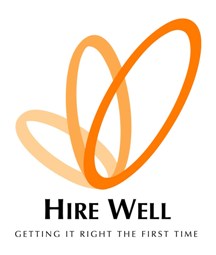Last week, I met an attorney who specializes in employment law. She loves her speciality, so I brought up this issue. While she realizes how frustrating this policy can be, she believes that strong employees will find someone who will speak to potential employers after hours -- and against policy. Her view is that if we can't find someone to break the rules, the candidate may have had issues.
So, here is the de facto company policy:
- We don't give out references, just dates of employment from an HR person who has no direct knowledge of the candidate.
- We know that some of our managers will speak with potential employers about outstanding candidates.
- If a candidate can't find someone who will break the rules for them, they probably aren't a very good candidate.
How does that help or protect anyone? If this becomes the norm, then I think candidates who can't find someone to break the rules -- and who can prove that others did -- could successfully sue the organization.
Small companies generally provide references - not because they don't know the risks, but because they know they will need references from other companies when they hire. They understand the give and take of business relationships. Of course, references from small companies are generally given by the owner or one of a few key managers. Those people are personally involved in keeping the company safe and I hope they know what should and what should not be said.
Here's a thought: Regardless of the size of the organization, good management would include regular feedback. When managers have communicated effectively with their staff, a truthful reference should come as no surprise to the former employee and would be backed up by documentation throughout his or her employment.
I generally recommend my clients pass on candidates who are not able to provide me with any past employer or manager who will actually answer my questions. That isn't fair to either party, but I have to do my best to protect my client and get the best person available into that position. Without being able to discuss that candidate's job performance, how can I be certain that this is the best person available? More importantly, how can I be certain that their former employer isn't hiding something relevant?Conversely, I have twice recommended for employment someone for whom we had less than stellar references. In one case, the candidate had gotten involved on the wrong side of a dispute in a family business and was fired. My client -- president of a family business moving into the 3rd generation --- understood how that could happen and hired him anyway. He has since been promoted and is an incredibly valued member of the team. In another case, we had three totally positive references and three totally negative for a candidate who worked for a company that I know has some management challenges. My clients and I discussed the situation and the candidate, came to our own conclusions and hired her. She has been successfully employed there for over two years and is a very effective manager.
In over 4 years of operating Hire Well, LLC I have successfully obtained references more often than not and I want to thank all business owners, managers, and supervisors who have played fair. For the rest of you -- grrrrr. If you end up hiring the wrong people for your company because no one will answer your reference questions just remember -- you asked for it.
For the record, here is what I want to know:
- Strengths
- Weaknesses
- Technical abilities as they pertain to the position
- Ability to work with peers and supervisors
- Work ethic
- Why he/she left the company -- and is she/he eligible for re-hire
- I will briefly describe the new position and company and ask whether it seems like a good fit
What do I learn from talking with supervisors and managers for 5 to 10 minutes and asking them these questions? Enough to make effective decisions that have proven to be correct over 80% of the time.
What do I learn from "dates of employment only" responses? Not a damn thing. And that's a shame.
